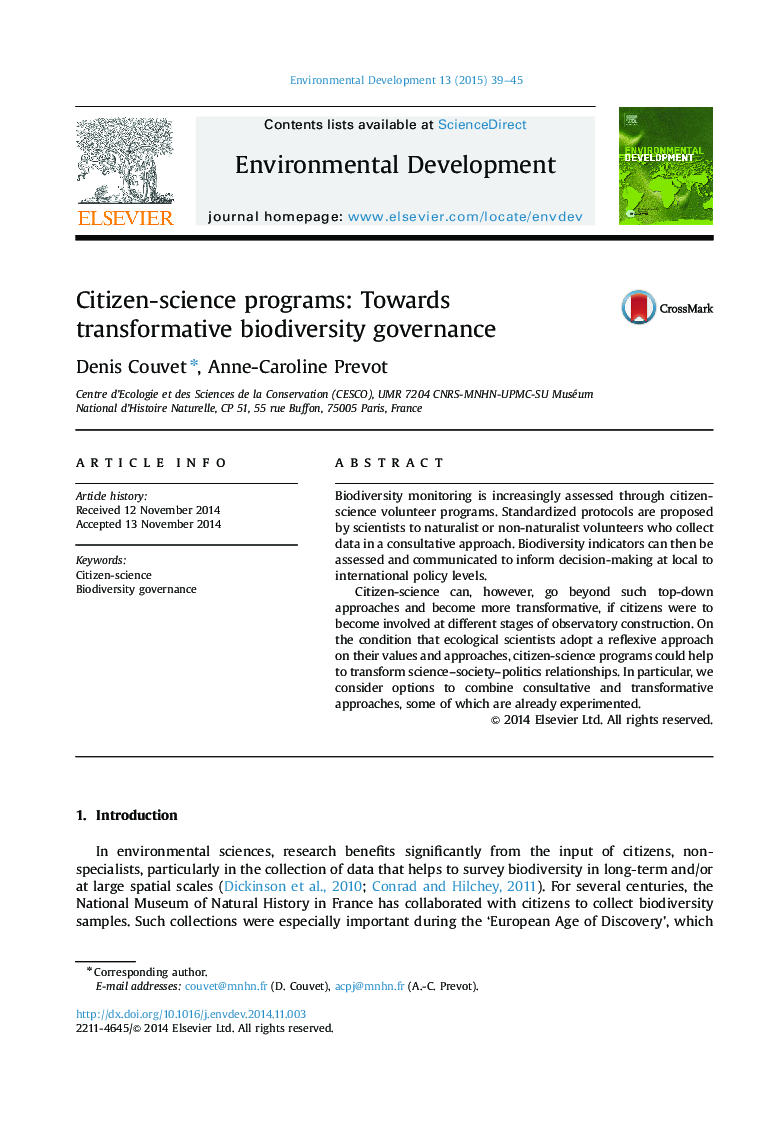| Article ID | Journal | Published Year | Pages | File Type |
|---|---|---|---|---|
| 4391437 | Environmental Development | 2015 | 7 Pages |
•Citizen-science proposes to collect data based on standardized scientific protocols.•Such volunteering programs provide reliable biodiversity indicators.•More transformative programs would bring together citizen and scientists in a shared objective forum.•These programs could therefore help to narrow the gap between science and society.
Biodiversity monitoring is increasingly assessed through citizen-science volunteer programs. Standardized protocols are proposed by scientists to naturalist or non-naturalist volunteers who collect data in a consultative approach. Biodiversity indicators can then be assessed and communicated to inform decision-making at local to international policy levels.Citizen-science can, however, go beyond such top-down approaches and become more transformative, if citizens were to become involved at different stages of observatory construction. On the condition that ecological scientists adopt a reflexive approach on their values and approaches, citizen-science programs could help to transform science–society–politics relationships. In particular, we consider options to combine consultative and transformative approaches, some of which are already experimented.
